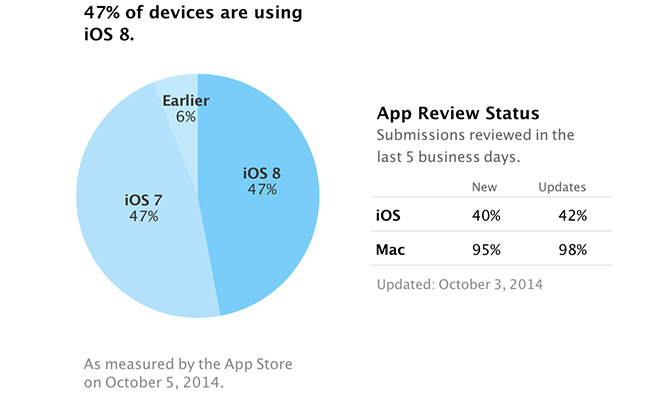In an update to its developer portal on Monday, Apple revealed 47 percent of iOS devices tracked through the App Store are running the latest iOS 8, a change of only one percent over the past two weeks.

As of Oct. 5, iOS 8 distribution equaled that of last year's iOS 7, with each OS version running on 47 percent of devices registered with the iOS App Store. Apple announced the latest statistics through its App Store support webpage for developers.
The metric compares to 46 percent distribution for iOS 8 two weeks ago, when the next-generation mobile operating system saw rapid adoption just after a Sept. 17 launch. At the time, the OS was tracking slightly behind last year's iOS 7, which garnered a 52 percent Web share one week after release, according to one third-party study.
Interestingly, over the past two weeks, Apple saw a one-percent uptick in devices running iOS 6 and older, bringing their combined share up to six percent of the total.
Consumers may be reluctant to upgrade to the latest iOS 8 version after seeing a slew of problems with the new operating system, the first being a launch-day bug that prompted Apple to pull HealthKit-enabled apps from the App Store. The HealthKit framework is a tentpole feature for iOS 8 that aggregates data from wellness apps and connected fitness accessories.
An updated 8.0.1 version was pushed out on Sept. 24 to patch the issue, but it too was quickly pulled after iPhone 6 and 6 Plus owners complained of non-functioning cellular and Touch ID hardware. A day later, Apple issued the latest iOS 8.0.2 update as a patch for HealthKit, cellular and Touch ID problems.


